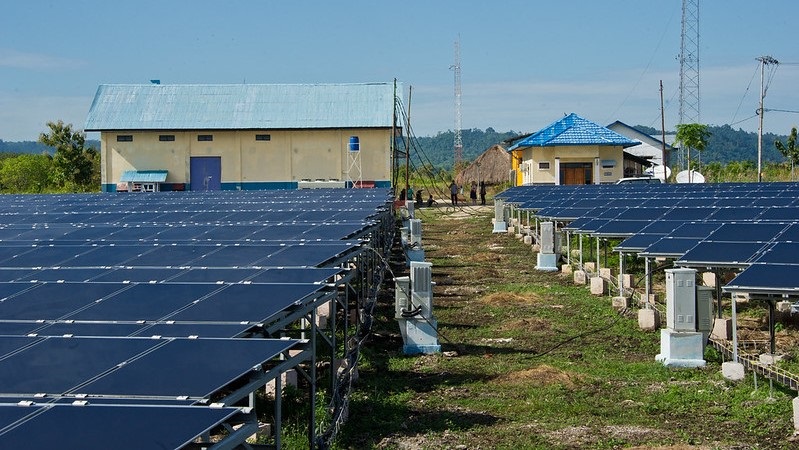The Global Green Growth Institute is working with governments including Colombia, Peru and Indonesia on “green new deal” plans
Developing nations can use the Covid-19 recovery to raise their climate ambition by creating green jobs.
That has become the mantra of the Global Green Growth Institute (GGGI), which is helping more than 20 countries develop new and improved national climate plans.
“Every country is focused on the recovery with jobs as the number one priority. The strongest argument [for climate action] is to focus on employment,” Frank Rijsberman, GGGI’s director general, told Climate Home News in an interview from its headquarters in Seoul, South Korea.
Every million dollars invested in clean energy creates nearly three times as many jobs as the equivalent in fossil fuel sectors, according to a widely cited study in the journal Economic Modelling.
“The fact that renewable energy provides more jobs than fossil fuel alternatives has become the biggest selling point for governments to focus on climate,” Rijsberman said. “If not for climate reasons, for recovery reasons.”
The argument has become particularly potent in emerging economies, with low-income countries also seeking to build climate and economic resilience through green jobs – allowing the Covid-19 recovery to underpin short and longer term climate action.
The GGGI is working with governments to develop ‘green new deal’ plans in more than 10 countries including Colombia, Peru, Mexico, Indonesia, Fiji, Vanuatu, and members of the Organisation of Eastern Caribbean States.
Majority of countries miss Paris Agreement deadline to increase climate ambition
Despite facing budget shortfalls, rising debt, and declining tax revenues, developing countries are expected to submit tougher 2030 emissions cuts, known as nationally determined contributions (NDCS), to the UN before Cop26 climate talks in Glasgow, UK, in November.
Only 70 countries representing about 28% of global emissions submitted their updated plans by the 2020 deadline. Among them, small and low-income countries such as Nepal, Fiji and Tonga – an “incredible” feat for these cash-strapped countries, said Rijsberman, at a time Fiji closed five embassies because of budget cuts.
A majority of emerging and low-income countries are yet to show how they are going to deepen their efforts to close the gap between current actions and what is needed to meet the goals of the Paris Agreement – limit global temperatures “well below 2C” and strive for 1.5C – on which vulnerable nations depend for their survival.
For Rijsberman, green job creation is key to reconcile strengthened climate plans with an economic reboot.
At a global level, a study from the New Climate Economy found that taking ambitious climate action could generate more than 65 million new jobs by 2030 – the equivalent of the entire workforce of the UK and Egypt combined – compared to business as usual.
A GGGI report published in July found “enormous and immediate opportunities to promote a ‘green growth’ agenda in developing countries by including measures from the NDCs in stimulus packages”.
It noted that renewable sector jobs are frontloaded in manufacture, distribution and installation, providing an immediate stimulus. Compared to fossil fuels, there is less labour required in the long term for operation and maintenance.




